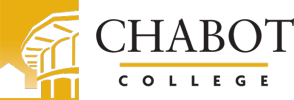
Economics
This program map from the 2024-2025 catalog year represents one possible pathway to complete this program. Your pathway may vary depending on your transfer plans and also previous college credit, including AP Test scores, concurrent enrollment courses and high school articulated courses.
I'm ready to get started. What do I do next?
- Review this program map to get an overview of the required courses
- Meet with a counselor to develop your customized student education plan www.chabotcollege.edu/counseling
- Use DegreeWorks, an online student education planning tool, to track your progress toward graduation www.chabotcollege.edu / admissions / degreeworks
The goal of the AA-T Economics Program is to prepare you for a four-year upper division institution of your choice. There are many alternative pathways that you may choose to satisfy this program. However, the more prestigious and selective the four-year school, the more they require a strong quantitative background.
What can I do with this major?
The Economics major prepares the student for a broad variety of careers, including those in law, journalism, banking and insurance, government, teaching, and research. In addition, the study of economics has become essential in today’s dynamic and complex business environment.
As of 2008, 28% of economics graduates ended up in business, finance, or associated professions. A 2013 University of Michigan study showed that Economics professors were the second highest paid from among 27 other disciplines with a median salary of $92,070 per year that included both masters’ degrees and PhDs.
The number of jobs over the next decade is expected to increase by about 14% from 2012 to 2022. Typical responsibilities of an economist are to:
- research and analyze economic issues
- analyze data using mathematical models and statistical techniques
- prepare reports, tables, and charts that present research results
- interpret and forecast market trends, advise business, governments, and individuals on economic problems
- write articles for publications in academic journals and other media sources.
Learning and Career Pathway
- Business, Economics & Information Technology
Icon Key
Semester 1
Calculus course (Choose MTH 1 or MTH 15) 1
English 1- Critical Reading and Composition
General Education Course- see a counselor to choose the appropriate general education pattern and general ed course option for this term.
Elective- see a counselor to choose a course that counts for elective units (can be any credit course). Take any course for 2 units if needed to bring the semester total to 15 units.
Semester 2
ECN
2
Principles of Macroeconomics
List A Course (MTH 2 or BUS 1A recommended; see a counselor to choose the best course for your transfer and career goals).
General Education Course- see a counselor to choose the appropriate general education pattern and general ed course option for this term.
General Education Course- see a counselor to choose the appropriate general education pattern and general ed course option for this term.
Elective- see a counselor to choose a course that counts for elective units (can be any credit course).
Semester 3
MTH
43
Introduction to Probability and Statistics
List B Course. (MTH 3 or BUS 1B isrecommended; see a counselor to choose the best course for your transfer and career goals).
General Education Course- see a counselor to choose the appropriate general education pattern and general ed course option for this term.
Elective- see a counselor to choose a course that counts for elective units (can be any credit course).
General Education Course- see a counselor to choose the appropriate general education pattern and general ed course option for this term.
Semester 4
General Education Course- see a counselor to choose the appropriate general education pattern and general ed course option for this term.
General Education Course- see a counselor to choose the appropriate general education pattern and general ed course option for this term.
General Education Course- see a counselor to choose the appropriate general education pattern and general ed course option for this term.
General Education Course- see a counselor to choose the appropriate general education pattern and general ed course option for this term.
Elective- see a counselor to choose a course that counts for elective units (can be any credit course).
List A
Select one course (3-5units) from the list below.
ENGL
4A
Critical Thinking and Writing about Literature
ENGL
7A
Critical Thinking and Writing across Disciplines
BIOL
2
Principles of Cell/Molecular Biology and Genetics
Intro to Biology Course (Choose one)
BUS
1A
Financial Accounting
BUS
1B
Managerial Accounting
Chemistry Course (Choose one)
CSCI
10
Introduction to Programming Using Visual BASIC.NET
MTH
20
Pre-Calculus Mathematics
MTH
2
Calculus II
SOCI
1
Principles of Sociology
List B
Select one course (3-5 units) from the list below.